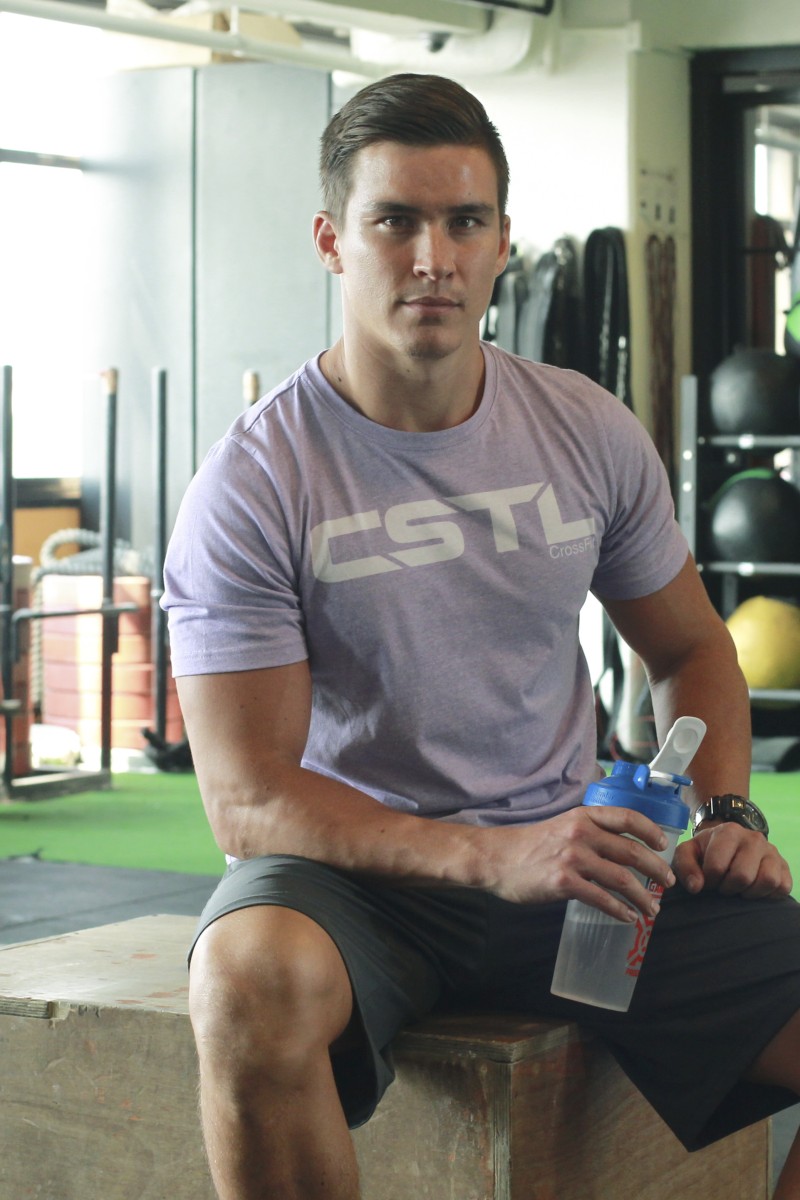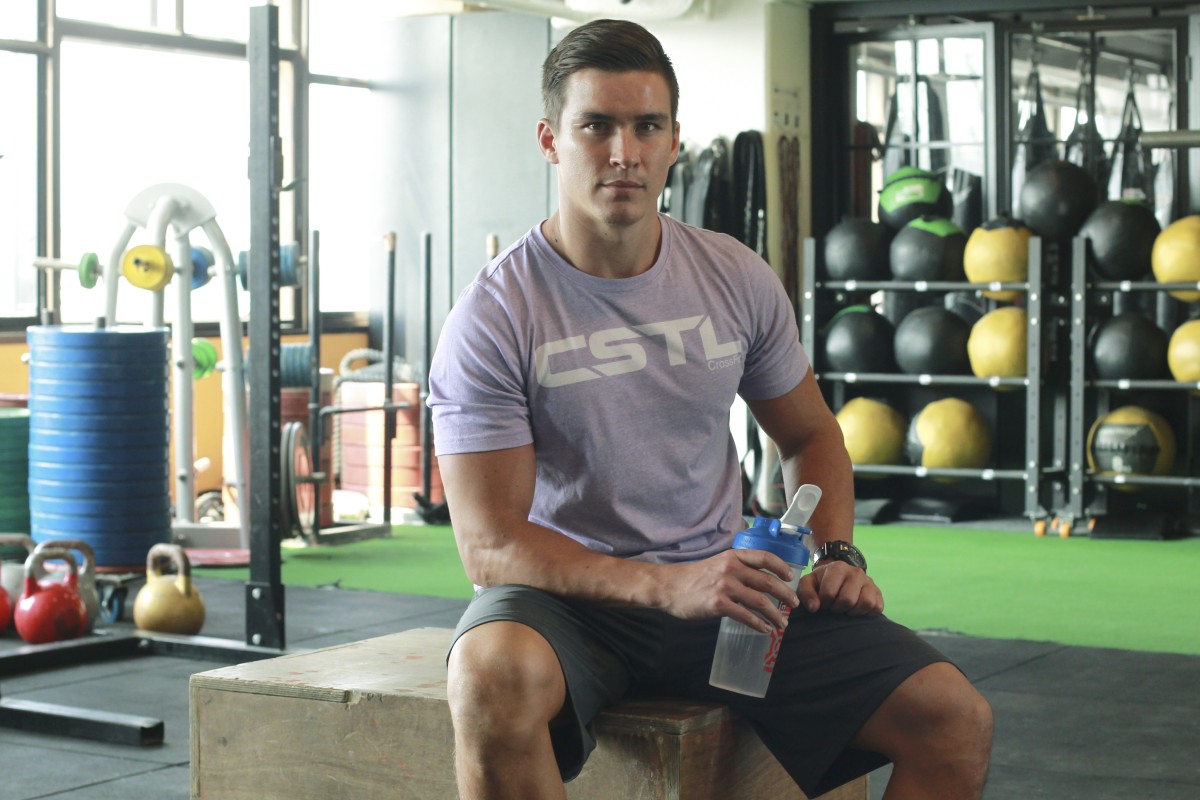
Fitness guru Ed Haynes reveals what to eat to have you looking and feeling your best - from the classroom to the basketball court
 Remember to stay hydrated!
Remember to stay hydrated!Want to look better, be fitter and have better skin? Want to be smarter and get better grades? You can, with one simple trick!
No, Young Post isn't trying to sell you a magic pill, but you can improve in all these areas by fixing just one thing - your diet.
What you eat and when you eat it has a huge impact on your body, your mind and your mood. We asked nutritional coach and fitness trainer Ed Haynes - founder of Coastal Fitness Performance Training - to dish out some advice on the mistakes teenage boys often make when it comes to eating, and the best ways to fix them.
Mistake 1: missing out on a good breakfast
"The most common mistake we see is that teens are either skipping this meal altogether, or are simply eating the wrong foods," says Haynes.
And starting off with the wrong breakfast - or no breakfast at all - sets the tone for the rest of your day. "It's very important that we nail this meal for a number of reasons," explains Haynes.
The first thing a good breakfast does is help your brain. The right foods can help stabilise your blood sugar for the rest of the day, which helps with your focus, energy levels and moods. Start off on the wrong foot, and you're going to have a hard time concentrating in school, and will end up cranky and crashing throughout the day.
Breakfast also helps to start your digestive system, getting it ready to process everything over the next 12 hours or so. But most importantly, breakfast is like putting gas in a car. "It's providing your body with fuel," says Haynes. "You're refuelling from the previous day, and fuelling for the day ahead." Without this, your body has a hard time recovering which adds extra stress and strain - the last thing growing bodies need.
At breakfast, it's important to avoid foods high in sugar, like cereals, snack bars, or sugary juices. Even plain fruit isn't enough to help your body get going. Haynes recommends having meat or eggs and some healthy fats like butter or nuts.
"Swap out the cereal and fruit juice breakfast for some eggs cooked in butter [not margarine or other oil]," says Haynes. "Add a handful of nuts and a piece of toast or oatmeal."
Mistake 2: no protein for your muscles
Even if you don't want to be a body builder, your body still needs muscle mass to function at its best, and keep you fit and healthy. To build these muscles, you need protein, and a lot of teens don't get enough of it.
"Protein is a very important macronutrient," says Haynes.
"It should be included in at least your three main meals - breakfast, lunch and dinner - each day."
Along with fats and carbohydrates, protein is one of the three main macronutrients - the sources of energy your body needs to function and survive. It helps repair and build your muscles and supports your immune system to keep you from getting sick.
"It also keeps us feeling full for longer," adds Haynes, "and therefore reduces the chances of over-eating or snacking on junk food."
Chicken, turkey, beef, pork, lamb, fish and eggs are all excellent sources of protein, so make sure to include them in your breakfast, lunch and dinner.
"Active young males should be looking to consume at least 30 grams of protein per meal," says Haynes. "An easy way to measure that is that the piece of protein should be roughly the size of your palm."
Mistake 3: not getting your greens
But you can't just fill up on meat and be done with it. You've got to eat your veggies, too. "Your mother tells you all the time, yet we all seem to ignore them," says Haynes.
We need vitamins and other micronutrients to keep us healthy - and that's where the vegetables come in. Green, leafy vegetables in particular are loaded with minerals, vitamins, and nutrients that help keep everything - especially your digestive system - functioning normally.
"If your digestive system isn't working as it should be, then it doesn't matter how much you exercise or how healthy your diet is," says Haynes. "You simply will not be absorbing anything."
And to be certain things are working right, it's important to be as aware of what's coming out of your body as much as what's going into it. So load up on those greens.
"There is no limit as to how many vegetables you can eat in a day," says Haynes. "Try to eat a large portion of vegetables with lunch and dinner at least, and one piece of fruit with your breakfast or for a snack."
Mistake 4: not drinking enough water
Staying hydrated has a big impact on how your body functions. Drinking more water helps everything from your ability to focus and your heart rate, to even how well you sleep.
And fruit juices and soft drinks don't count. Their high sugar content throws you off a balanced diet and makes your mood swings and sleepiness even worse. Haynes says nothing beats plain, simple water to keep your body running smoothly.
"The goal is to consume 30ml per kilogram of body weight per day," says Haynes. So a 50kg person should drink 1.5 litres of water each day, and if you're active and play sports, you need even more.
But there's a time and a place to wet your whistle. "Try to avoid drinking large amounts of water with your meals as it slows your ability to digest food," Haynes warns. "You should drink moderate amounts of water 20 minutes before and after your meals, not during. And constantly sip on water throughout the day."
Still confused about what to eat and when? Here's an example of how to eat on a normal day:
7am - Wake up
7.30am - Breakfast: three scrambled eggs on two pieces of whole wheat toast, 10 almonds and one large glass of water
10.30am - Snack: one apple
1pm - Lunch: one palm-size piece of chicken with one cup of cooked rice and steamed bok choi
6pm - Dinner: one palm-size piece of pork with one cup of potato or rice and a large serving of steamed broccoli or other vegetables